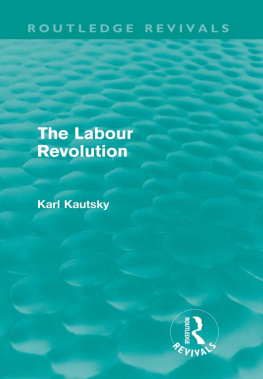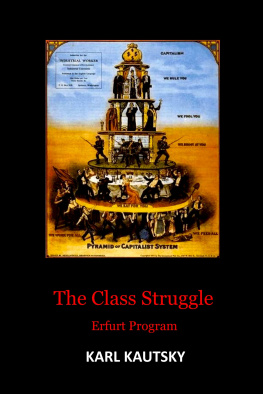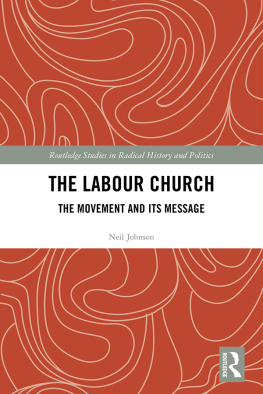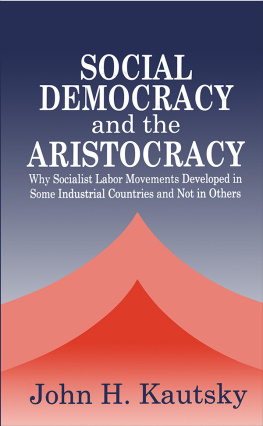First published in English in 1925
by George Allen and Unwin
This edition first published in 2011 by Routledge
2 Park Square, Milton Park, Abingdon, Oxon, OX14 4RN
Simultaneously published in the USA and Canada
by Routledge
270 Madison Avenue, New York, NY 10016
Routledge is an imprint of the Taylor & Francis Group, an informa business
All rights reserved. No part of this book may be reprinted or reproduced or utilised in any form or by any electronic, mechanical, or other means, now known or hereafter invented, including photocopying and recording, or in any information storage or retrieval system, without permission in writing from the publishers.
Publisher's Note
The publisher has gone to great lengths to ensure the quality of this reprint but points out that some imperfections in the original copies may be apparent.
Disclaimer
The publisher has made every effort to trace copyright holders and welcomes correspondence from those they have been unable to contact.
A Library of Congress record exists under LC Control Number: 25023129
ISBN 13: 978-0-415-67649-6 (hbk)
ISBN 13: 978-0-203-80769-9 (ebk)
ISBN 13: 978-0-415-67828-5 (pbk)
THE LABOUR REVOLUTION
THE LABOUR REVOLUTION
BY
KARL KAUTSKY
TRANSLATED BY H. J. STENNING
LONDON: GEORGE ALLEN & UNWIN LTD. RUSKIN HOUSE, 4o MUSEUM STREET, W.C. 1
First published in 1925
(All rights reserved)
Printed in Great Britain
PREFACE TO THE ENGLISH EDITION
THE present book was prompted by German conditions, and in the first place it had only German readers in view. But it is by no means specifically German affairs that I deal with here. The tendencies and problems which I investigate in the following pages are common to all countries where modern large-scale industry exists, although the various countries are distinguished considerably by the level of their industrial development. It is, however, precisely upon these distinctions and the problems which arise out of them for the Socialists of the nations concerned that I believe I am able to throw new light. Consequently my book does not concern Germany alone, but applies to all the capitalist nations of the West which have a middle class revolution behind them, as well as to the countries of the East, especially Russia, which are still in the stage of the Middle Class Revolution, even if the latter is being accomplished by Socialists and with socialistic phraseology.
My book is addressed to readers in all countries where a Labour Government is a prospect of the near future, and consequently it should interest readers in Great Britain more than those of another country.
For there we have first to expect the advent of a Labour Government, which will be not merely in office but in power, and have behind it a majority in Parliament as well as among the people. There is no franchise that so much favours great landslides, astonishing changes in the positions of parliamentary parties as the British, much more so than, for example, the system of proportional representation, as introduced into Germany by the Revolution. This product of the Revolution impedes rapid alterations in the distribution of power, and thereby exercises a conservative effect, whereas England's electoral system, moulded on the two-party system, and in so far bound up with old traditions, may exercise a revolutionary effect. There are other revolutions than those made with powder and dynamite.
The same electoral fortune, which has to-day presented the Conservatives with two-thirds of the seats in Parliament, although they did not secure a majority of the votes cast, may favour the Labour Party in the same way at the next General Election.
Then it would be able to achieve great and decisive things, for which it ought now to be preparing. Not in the sense that it should now draft all the Bills which it would then introduce. This would be as if a general in time of peace were to determine the movements which each of his regiments would have to execute in the battles of an expected war. Of course, the general would have to be familiar with the principles of the tactics appropriate to the given type of armament, he would have to study the territory in which the conflict would probably be fought out, and be exactly acquainted with the distribution of forces and the auxiliary resources, the ways and means.
And, passing from the military to the social and political sphere, the Labour Party which anticipates it will come to power within a measurable time must now do the same thing.
In this connection one's own country would naturally form the chief subject of study. But the economic structures of the various countries of capitalist civilization are so very much alike that each country may learn a good deal from abroad, which of course does not mean slavish imitation. All the Socialist parties of the world have learnt important lessons from England, from her Chartists, from her Trade Unions. The English working class was the pattern which Marx held up to the workers of the Continent. He called the English workers the prize-fighters of the working classes of the world. Since then the working classes of the various countries have approximated much more closely to each other. To-day the workers of a country have something to learn not from the workers of one particular country alone, but from those of the most various countries.
What is set forth in my book are not the experiences of a single country, but those of all countries where Labour Governments or Coalition Governments with Labour participation have existed since the war. I was able to acquire close insight into the relative conditions not only from the literature, but also from the labours of the German national Socialization Commission, which elected me as its chairman.
These experiences, whether favourable or unfavourable, have shown us the problems with which every Labour Government will be confronted. They have already taught us methods to be avoided and methods which promise success.
My book has been written not for a particular nation, but for the Socialists and their friends in all countries. I venture to hope that its purpose, the exposition of the methods to introduce Socialism, will soon become of practical importance for Great Britain.
KARL KAUTSKY.
VIENNA,
November, 1924.
P.S.The first sixty-three pages of the German edition dealing with the revision of the German party programme have been omitted in this edition as being of minor interest to English readers.















